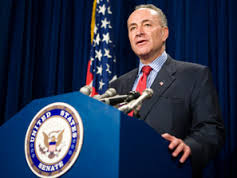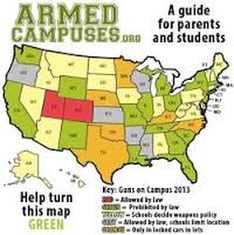 Videos posted online by the Islamic State and messages on social media contributed to the radicalization of the three men, all of which was monitored by the DHS facilitating in part apprehension. Also, a shutdown for the Transportation Security Administration (TSA) a division of the DHS means that most employees would still continue to come to work, without receiving a paycheck for that work until the shutdown ends, which includes about 50,000 employees.The DHS website reports, “Yes, critical operations would continue, but the support for those operations would cease. Approximately 6 percent of the TSA workforce would be furloughed. Hiring would cease. Required training would cease. Travel associated with routine planned security inspections would cease. Deployment of security technology equipment would potentially be delayed.” Maintaining the seamless operations of the DHS is not being taken seriously by the Republicans in the House. Practicing brinkmanship with the Senate and power games with the safety of Americans both in the US and around the world are appalling and a discredit to the democratic system of government. Is this the face of democracy Americans want portrayed around the world, as we pursue diplomacy and peace? If so little regard for the safety of Americans is acted out in Congress, other countries could perceive the US as weak-minded, fickle and unable to solve basic issues tantamount to running a stable government. The three week extension being brokered by the House is a stop gap measure ensuring a few more weeks of attacks on immigration policy reform that Americans are tired of hearing. When Republicans start haranguing that Democrats don’t compromise or “work” with Republicans, I hope they remember this day. Senate Democrats said they would vote for a three-week funding extension for the Department of Homeland Security if that legislation made it through the House, Sen. Chuck Schumer (D-N.Y.) said Friday morning. Clearly Democrats prioritize the security of the US, not brinkmanship or party politics. In Politico, Schumer said he’s not sure if the House can pass the three-week bill, but Senate Democrats would prefer to pass a full funding bill. “The quickest and easiest solution … is for them is to put the bill that Senator McConnell, their fellow Republican, put together, and just fully fund Homeland Security, and then we can debate immigration,” the New York Democrat said. While his party would support the legislation, even short-term extensions hurt homeland security. I predict legislation will be passed before midnight tonight, but not after some Republicans have squeezed out every ounce of propaganda they can muster to confront and neutralize the Democratic agenda to treat immigration reform with the respect and honesty it deserves. Resources http://www.cnbc.com/id/102462671# http://www.pewresearch.org/topics/immigration-attitudes/ http://thinkprogress.org/immigration/2014/11/04/3588311/majority-americans-voters-want-immigration-reform/ http://www.politico.com/story/2015/02/funding-extension-dhs-democrats-chuck-schumer-115580.html?ml=ri
0 Comments
Somehow the term “taking the path of least resistance” for Netanyahu includes leaving his troubles and homeland unrest behind him in favor of traveling to the US where he has a camaraderie with a hawkish Republican Congress willing to listen and support what many believe is not only a breach of diplomatic protocol but an attempt to blind side sensitive negotiations with Iran that could eventually bring peace to the region.
Resources http://frontpage.pch.com/p/news/source/news_ap/category/top_headlines/article/f581624b3fa646d8a18997eb6d7dfc9b http://www.nytimes.com/2015/02/26/us/politics/susan-rice-calls-netanyahus-planned-visit-destructive-to-us-israel-ties.html?_r=0 http://www.haaretz.com/news/features/.premium-1.644087
When a rescue ship eventually re-establishes contact, Lowell knows that his crime—he killed a crew man--will soon be discovered. It is then that he realizes a lack of light has restricted plant growth, and he races to install lamps to correct this situation.
In an effort to save the last forest, Lowell jettisons the dome to safety. He then detonates nuclear charges, destroying himself and the ship. The final scene is of the now fully lighted forest greenhouse drifting into deep space, with Dewey tenderly caring for it, holding an old watering can. We don’t know if drones or bio-domes are in the future for the Mars astronauts, and the ultimate outcome of the experiment is uncertain. The Mars One description of what they will report is optimistic highlighting the lighter side of isolation. They will be asked to share all that they enjoy and find challenging. It will give the people on Earth a unique and personal insight view of life on Mars. The creators have envisioned intriguing questions like: What is it like to walk on Mars? How do you feel about your fellow astronauts after a year? What is it like living in the reduced Mars’ gravity? What is your favorite food? Do you enjoy the sunsets on Mars? These are lovely questions, but somehow they skirt the interpersonal issues that could be the down fall of space exploration. Reports would have to include interpersonal relationships and the effects of living on a hostile planet and confined enclosures with restricted interaction and support of a wider community. In science fiction movies like “Silent Running” and more famous “Space Odyssey: 2001,” the science was the easy part. Living together was the challenge. I know you are probably thinking can science fiction predict the future. Business Insider described some instances when science fiction writers like Jules Verne did in fact predict the future in their books, some of which have been made into movies. Verne's dystopian "Paris in the Twentieth Century" wasn't his greatest work, but what makes it most interesting are the inventions he predicted almost 100 years before they were actually made. They include the submarine and the technology needed to land on the moon, they said. “The World Set Free” by H.G. Wells predicted the use of atomic bombs. “Brave New World” by Aldous Huxley told us about a society controlled by mood-enhancing drugs. If you have ever heard the phrase “Orwellian,” then you know “1984” predicted world domination by a select few. “Stranger in a Strange Land” by Robert Heinlein: he may have also foreseen the Mars One mission to send people on a one-way ticket to live on Mars, as his book's main character was born and raised on the red planet. “Neuromancer” by William Gibson was published in 1984 about cyberspace and computer hackers. Many of us were still figuring out how to use a computer while Gibson's character was not only using a computer, but hacking and stealing data. Earthlings are consistently overwhelmed by the enormity of space and the infinite possibilities for future generations who will be space explorers. Mars One is the beginning of experimentation with living on other planets in a different atmosphere and environment. If stories about space travel are any indicator, the most difficult challenge will be just trying to get along with others, which if you think about is the same thing many of us are doing on earth. Resources http://www.cnn.com/2015/02/17/tech/mars-one-final-100/ http://www.mars-one.com/mission/humankind-on-mars http://www.scifimoviepage.com/silent.html
These are few of the social/political proclamations that stood out. The over arching question remains is the Academy Awards an appropriate venue for declarations?
One of the most important aspects of writing a good story is the ability to develop a coherent point of view. Stories that become movies usually have something to say, whether it’s social, political, or emotional. A movie with a weak or undeveloped point of view leaves the viewer empty neither wanting more, nor caring about the characters. Excellence, however, is satisfying with subject matter and characters—not only do we identify with them, but also it stimulates our curiosity to know more or seek knowledge and understanding. The vision of the storyteller/writer becomes at once tangible through the performance arts. The writer and the actor merge in one single vision. In an awards ceremony, the recipient steps back inside the story giving relevance to the theme and, indeed, their own relationship to it. Personal anecdotes and experiences inject life into the auspiciousness of an award; therefore, I would argue that it is entirely appropriate to humanize art with an event or cause that propelled a person to create. The body of performance arts, whether on the page or screen, reaches out to us poignantly from the mouths of those charged with capturing humanity in all its glory and degradation. And the fact that in America we have free expression is greatest gift of all.
Evidence for firearms in schools is the opposite of what gun advocates purport
In 2013 The American Psychological conducted research on gun violence: Prediction, Prevention and Policy. They commissioned a panel of experts to reveal research-based conclusions and recommendations to reduce the incidence of gun violence including homicide, suicide and mass shootings. The following are the findings: Prevention efforts guided by research on developmental risk can reduce the likelihood that firearms will be introduced into community and family conflicts or criminal activity. Prevention efforts can also reduce the relatively rare occasions when severe mental illness contributes to homicide or the more common circumstances when depression or other mental illness contributes to suicide. Reducing incidents of gun violence arising from criminal misconduct or suicide is an important goal of broader primary and secondary prevention and intervention strategies. Such strategies must also attend to redirecting developmental antecedents and larger socio-cultural processes that contribute to gun violence and gun-related deaths. What works: Policies to reduce gun violence The use of a gun greatly increases the odds that violence will lead to a fatality: This problem calls for urgent action. Firearm prohibitions for high-risk groups — domestic violence offenders, persons convicted of violent misdemeanor crimes, and individuals with mental illness who have been adjudicated as being a threat to themselves or to others — have been shown to reduce violence. The licensing of handgun purchasers, background check requirements for all gun sales, and close oversight of retail gun sellers can reduce the diversion of guns to criminals. Reducing the incidence of gun violence will require interventions through multiple systems, including legal, public health, public safety, community, and health. Increasing the availability of data and funding will help inform and evaluate policies designed to reduce gun violence. In the report, they contend that the use of a gun greatly increases the odds of a gun fatality. Additionally, studies by the National Research Council conducted in 2004 and again in 2010 to address the relationship between right-to-carry laws and crime rates and both times found that concealed carry laws have a negligible effect on crime rates, according to a report by the Boston Review. Concealed carrying increases rates of aggravated assault. Two legal scholars, Ian Ayres and John Donohue, further reviewed the findings supporting concealed carry and discovered that the data contain numerous coding and econometric errors that, when corrected, yield the opposite conclusion: right-to-carry laws increase crime. In conclusion, the Boston Review said it best: “The NRA supports bills that permit guns to be carried in vehicles on school grounds, arguing that firearm owners should not be punished for accidentally leaving a gun in their car. Curiously, there seems to be little concern for what happens if the same careless owner accidentally forgets to lock his car, accidentally fails to put the safety on, or accidentally pulls the trigger, ad infinitum. It seems clear that there are many more ways to accidentally go wrong with a gun than there are ways to go right, and this is especially true in a densely populated, anxiety-ridden, alcohol-saturated, hormone-fueled school environment.” Resources http://www.nytimes.com/2015/02/19/us/in-bid-to-allow-guns-on-campus-weapons-are-linked-to-fighting-sexual-assault.html?ref=politics&_r=0 http://www.bostonreview.net/us/evan-defilippis-guns-schools-nra-ucsb https://www.nraila.org/articles/20121001/allow-concealed-carry-on-campus http://www.apa.org/pubs/info/reports/gun-violence-prevention.aspx
Dr. Richard Besser, ABC News chief health and medical editor, echoed the same concerns about measles parties.
“This is a really bad idea,” he said. “Although most children recover from chicken pox and measles without a problem, not all do. The vaccines are far safer than the diseases.” Who should and should not get the MMR vaccination MMR is a two-shot series of vaccines usually given during childhood. A child should receive the first shot when he is between 12-15 months, and the second when he's between 4-6 years of age. If you're not sure if you have had the diseases or the vaccines (prior to 1971 it was given in three separate shots), you can get the MMR vaccine as an adult. Talk to your doctor about it if:
Resources http://abcnews.go.com/Health/stay-measles-parties-docs-warn-parents/story?id=28842782 http://www.livescience.com/49716-measles-outbreak-questions.html http://www.webmd.com/children/vaccines/measles-mumps-and-rubella-mmr-vaccine |
Dava Castillo
is retired and lives in Clearlake, California. She has three grown
children and one grandson and a Bachelor’s degree in Health Services
Administration from St. Mary’s College in Moraga California. On the
home front Dava enjoys time with her family, reading, gardening, cooking
and sewing. Archives
November 2015
|







